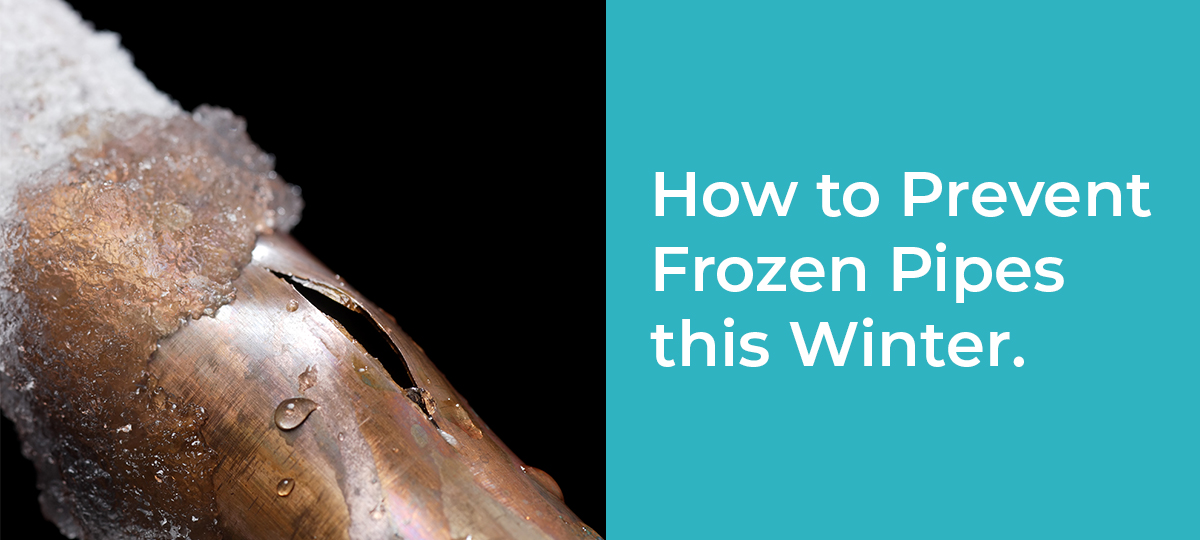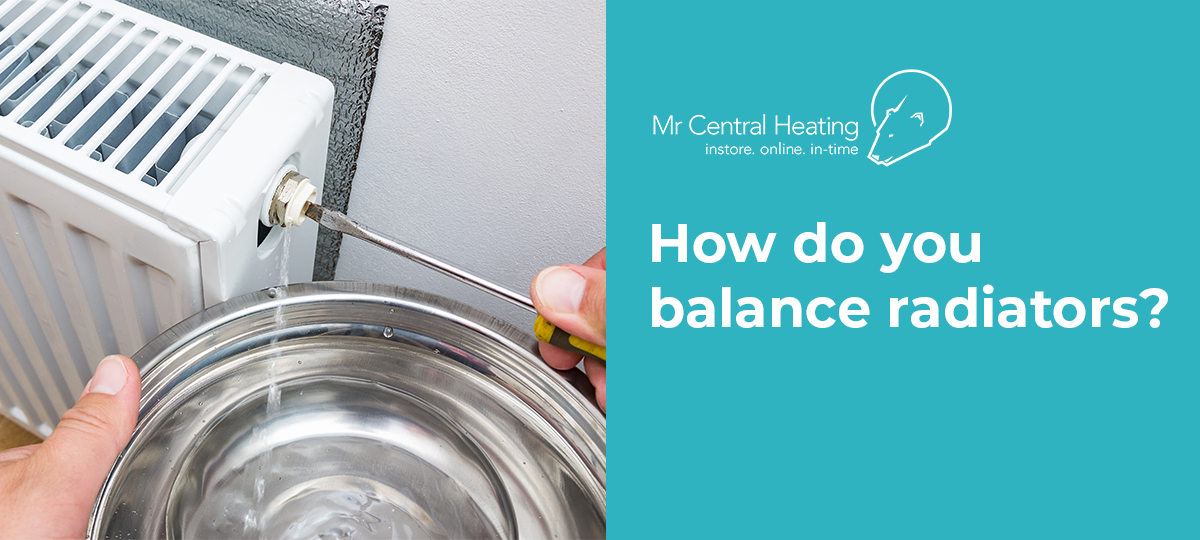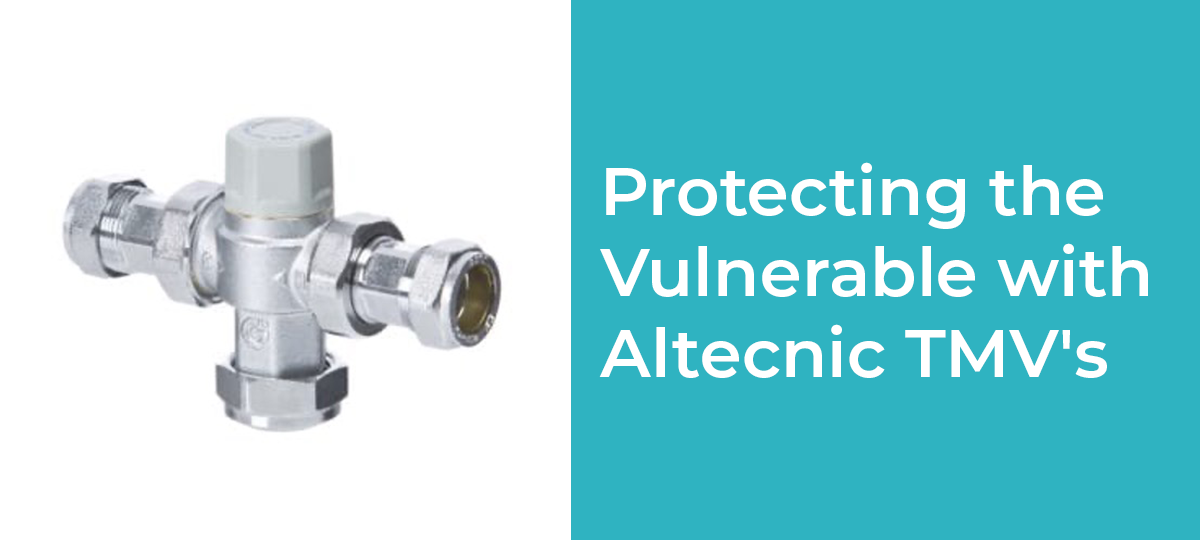How to prevent frozen pipes this winter.
We know the climate in the U.K. can be temperamental, but it can normally be relied on that our winters are pretty cold. This is especially true in the more northern parts of the country and Scotland. Therefore, it’s good to know how to prevent your pipework from freezing in the cold weather as it can cause disastrous damage to your whole water system if left untreated. Water damage can make a mess and destroy your belongings. Add in already lowering temperatures and you will have a right mess on your hands. As this is something you will want to avoid, we have some tips for you to prevent frozen pipes and protect your water system this winter.
Why are frozen pipes so bad?
As you probably know, water expands as it freezes. This puts a huge amount of pressure on the pipes that are holding it – whether they are made of metal or plastic. The strength of the material doesn’t matter as frozen water is extremely strong. Pipes that often freeze include outdoor pipes and water supplies in unheated indoor areas such as the basement, crawl spaces or garages. It also includes those pipes that may run up exterior walls with minimal insulation. With expansion of pipes, comes damage. Broken pipes will leak when the frozen water thaws. If you haven’t noticed the damage to your pipes, you could be in for some serious water damage when spring arrives.
How to protect your pipes from the cold
Here is a quick guide on how you can better protect your pipes from the cold.
1. Insulate your pipes
The easiest thing homeowners can do is to prevent the opportunity for pipes freezing. The best way to do this is by insulating the colder areas they might be running through. For example, placing basic insulation in your garage or in your basement may raise the temperature by a couple of degrees, preventing any freezing of water. Both hot water and cold-water pipes should be insulated, as dependent on location, they’re not always getting used. Pipes freeze more frequently when they are left exposed to the elements. You can also purchase pipe sleeves, pipe insulation and other products which are made specifically to insulate exposed pipes. Those that may run outside could benefit from these and they are a simple DIY job to fit. Even placing newspaper or other materials near or around exposed pipes can prevent the sudden drop and expansion.
2. Relocate problem pipes
If the problem persists it might be worth considering relocating water supply lines and pipes into a more sheltered area or building a protective sleeve etc. around the pipework. Before the freezing temperatures return it is recommended to carry out some preventative maintenance.
3. Be prepared
It is also a good idea to know where your stopcock is so if you do run into the problem of freezing pipes when the temperature drops you can reduce the likelihood of a burst pipe since the shut-off valve will stop the water flowing, reducing the water pressure in the system.
Prevent Frozen Pipes
To prevent frozen pipes, you just have to try and keep the cold away as much as possible. This may seem obvious, but sometimes we don’t think about where our pipes might be vulnerable. Keeping garage doors sealed closed, opening kitchen cabinet doors (and ensuring there is no damp around) to keep air circulating and keeping your thermostat steady can all contribute to the prevention of frozen pipes and reduce the chances of a blockage. Even if you’re going away in the winter period, keeping a small amount of heat on, and flowing through your home should help prevent the freeze. It may seem an expense but burst pipes and water leaks will cost a lot more to fix. When the cold snap hits, unheated areas can become very cold quickly. As soon as the temperature drops below zero-degrees water freezes so being prepared is best.
Thaw Frozen Pipes
So maybe it’s too late – what can you do to thaw frozen pipes? Keep the tap running as it allows the water somewhere to escape to as it starts to thaw. You don’t want a pressure build up in your system. Especially if you’ve been able to escape the expanding pipe damage. Excess running water will also help melt the ice in the pipes and start the thawing process. Start to apply some warmth to the frozen section using a heating pad or towels that have been soaked in warm water (If it isn't too cold outside). Don’t use any electric items or gas or open flames as this can be very dangerous. It might be tempting to use a hair dryer but if the pipe bursts as you are heating it, you could run the risk of being electrocuted. Keep applying warmth to the frozen pipe until the water is flowing freely. Make sure to check other pipes in your home too, as it may not be an isolated case. Can’t find where the frozen section? Then it might be time to call a licensed plumber to get it sorted to avoid property damage.
Prevention is key
When it comes to frozen pipes during cold spells, prevention is key. Start thinking about the state and exposure of your water system before it gets too cold. Try and insulate now to avoid problems later. If you want to move pipes or are look at upgrading your system, it’s always a good idea to seek a licensed professional's help.
Here at Mr Central Heating, we have some of the best prices on plumbing essentials. From foam and felt insulation, to pipe replacements, we have you covered this winter. Don't forget to follow us on Instagram for the latest updates, deals and more.






















